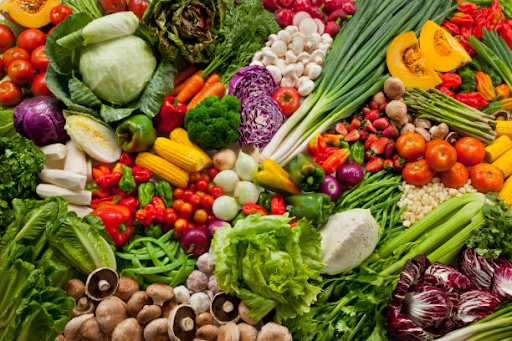To sign up for our daily email newsletter, CLICK HERE
An agricultural activity known as sustainable farming strives to meet the demands of the current generation while protecting and improving the environment for future generations. In recent years, as worries about climate change, soil erosion, and food security have grown, sustainable farming has made tremendous strides. Businesses around the world are becoming more self-aware of their carbon footprint, while solution providers like this carbon farming company have partnered with farmers around the world to fight climate change.
Farmers may lessen their negative environmental consequences, encourage biodiversity, and guarantee the long-term health of their businesses by employing sustainable farming practices like hydroseeding. Hydroseeding, a technique promoted by companies such as this Queensland Erizon company, which plays a crucial role in protecting our planet. This article examines the development of sustainable agriculture, its top-down methodology, and the numerous advantages it provides.

According to a recent survey, more and more farmers throughout the world are employing sustainable farming techniques. From organic farming to regenerative agriculture, farmers are embracing practices that place an emphasis on environmental stewardship, soil health, and biodiversity preservation.
Examples of sustainable farming techniques include the use of natural fertilizers, crop rotation, integrated pest management, water conservation techniques, and a reduction in the usage of chemical inputs.
These procedures aim to preserve a healthy ecosystem, reduce negative effects on the land, water, and neighboring species, and work harmoniously with nature. Numerous benefits include:
1. Environmental protection:
Sustainable agricultural methods aim to reduce damage to the environment. Sustainable farmers avoid water pollution, safeguard biodiversity, and preserve soil health by using less industrial fertilizers and pesticides.
They concentrate on methods that support organic pest control and safeguard the delicate balance of ecosystems. Techniques such as composting, planting cover crops, and implementing integrated pest management (IPM) are key components of their strategy. These initiatives significantly reduce agriculture’s ecological footprint and contribute to the preservation of natural resources. However, in the event of a rodent infestation in their barns or storage areas, they will seek the services of a rat exterminator in Texas or another local pest control company to handle the issue promptly and effectively.

2. Climate Change Mitigation:
Sustainable agriculture is essential for reducing climate change. Using methods like cover crops and agroforestry, which assist in trapping and storing atmospheric carbon dioxide, encourages the sequestration of carbon in soils.
The utilization of renewable energy sources, efficient water use, and a reduction in emissions from machinery are all practices that sustainable farmers frequently implement to reduce greenhouse gas emissions. That said, farmers support international efforts to battle this urgent issue by proactively addressing climate change through sustainable farming.
3. Soil Health and Fertility:
Sustainable farming practices place a high priority on soil health and fertility. Sustainable farmers boost the structure of the soil, increase its capacity to hold water and increase the availability of nutrients by putting into practice practices including crop rotation, the addition of organic matter, and minimal tillage.
In addition to promoting agricultural growth, healthy soils also store carbon, filter water, and reduce erosion. Farmers may ensure the productivity and adaptability of their land for future generations by practicing sustainable farming.
4. Economic Resilience and Longevity:
Sustainable farming methods help farmers maintain their financial stability. Farmers can increase their profit margins by lowering input costs by using natural fertilizers and pest control strategies. Additionally, diversifying crops and value-added goods is a common practice in sustainable farming.
This creates several income streams for farmers and lessens their sensitivity to market swings. Farmers may create resilient, economically viable enterprises that can succeed in the long run by implementing sustainable practices.
5. Better Food Quality and Safety:
Producing wholesome, secure food is a top priority for sustainable farming. Sustainable farmers limit the number of pesticide residues in crops and promote healthier food options by using fewer synthetic chemicals. In addition to putting animal welfare first, sustainable farming practices result in the production of premium, ethically raised dairy and meat products.
Customers can improve their health while promoting environmentally friendly farming methods by selecting items that are produced sustainably.

Sustainable Farming Methods
1. Crop rotation:
By preventing soil nutrient imbalance and depletion, rotating crops can improve the health and fertility of the soil.
2. Organic farming:
Reducing chemical pollution and promoting ecological balance by using natural pesticides and fertilizers.
3. Conservation tillage:
Reducing soil disturbance by using less tillage enhances water retention, prevents erosion, and fosters soil health.
4. Agroforestry:
Combining trees with crops or livestock increases biodiversity, offers shade, and aids in carbon sequestration.
5. IPM
Using a combination of biological, cultural, and chemical control strategies to manage pests successfully reduces the need for pesticides. This approach is known as integrated pest management (IPM).
6. Techniques for conserving water:
Using irrigation systems that make the best use of water, like drip irrigation, minimizes water waste and encourages effective water management.
7. Cover cropping:
Planting cover crops in between primary crops prevents soil erosion, improves soil structure, and adds organic matter.
8. Livestock Preservation
Animal welfare must be prioritized, proper grazing methods must be used, and concentrated animal feeding operations (CAFOs) must be minimized in order to support sustainable livestock production.
9. Precision Agriculture:
Using technology like GPS and remote sensing, precision agriculture maximizes resource use, reduces waste, and boosts agricultural yields.
10. Community-supported agriculture (CSA):
Through CSA programs, local food systems are encouraged, food miles are reduced, and ties between neighbors are strengthened.

The verdict
Finally, there are a variety of benefits to sustainable farming that extend beyond the farm. By implementing environmentally friendly practices, farmers may reduce climate change, protect ecosystems, and ensure the sustainability of their companies.
The top-down approach to sustainable farming, which incorporates environmental preservation, climate change mitigation, soil health, economic resilience, and improved food quality, exemplifies the holistic and interconnected nature of sustainable agriculture. And, ultimately, it comes down to the shoulders of every citizen to be responsible.